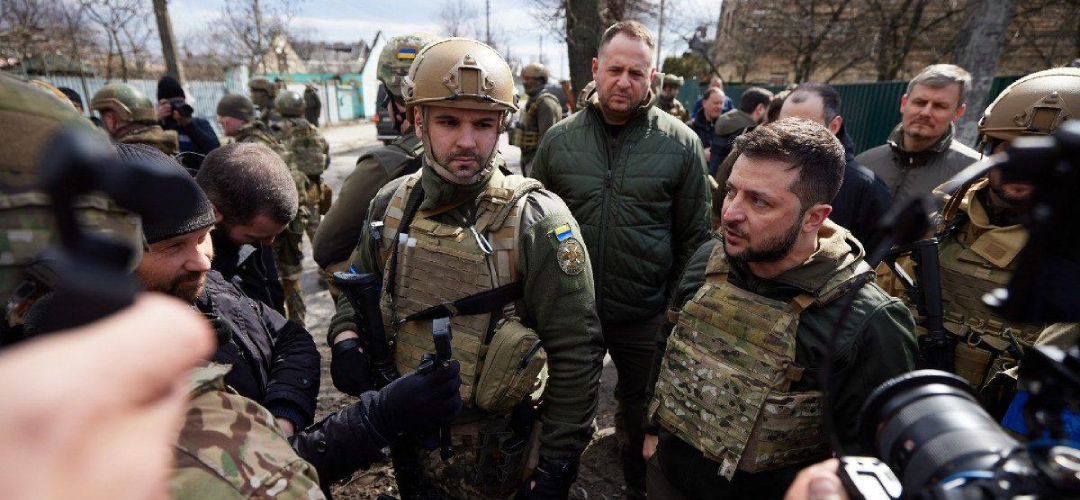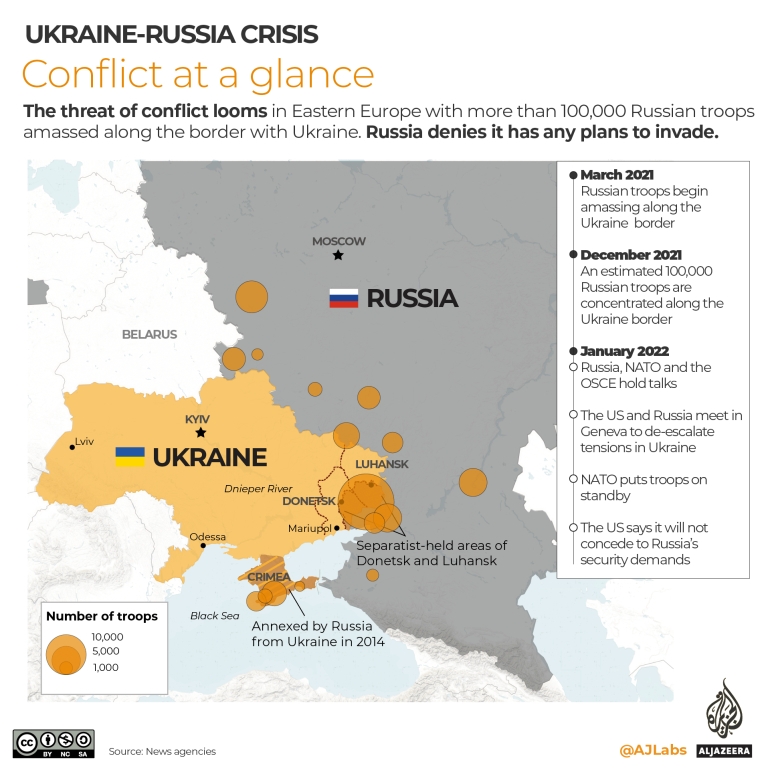NATO: Emerging Faultlines
September 23, 2023 | Expert Insights

It has long been postulated in international relations that national interest triumphs everything else.
Many have tried to counter this argument. They have said that sometimes a nation could subsume its own interests for a higher cause. These people are idealists. But time and time again, they have been proved wrong. Fighting for one’s national interest does not have the same charm as struggling for a nebulous and vague cause like freedom. Still, at the end of the day, it is more realistic and impactful.
As the Ukraine war resists all efforts to bring it to a conclusion, there is clear evidence of 'battle fatigue' appearing amongst NATO members. While other nations have generally kept a lid on it, Poland, which has been the frontline NATO member in this dispute, has announced that it would no longer supply lethal arms to Ukraine.
Background
The war between Russia and Ukraine has now been going on for more than a year. In this time frame, Ukraine has not been alone. Even though Ukrainians would like to downplay this, they have had numerous allies and partners. Some have supported from far away while others have been closer by.
Ukraine is surrounded by a number of countries to its West. These include Poland, Slovakia, Hungary and Romania. Each of these countries are quite different from each other. They have their own historical trajectories. All were once under communist rule. Due to this, they have faced the brunt of Russian imperialism in the past.
Given this background, it was expected that most of these countries would wholeheartedly support Kyiv when Russia launched a full-scale invasion of Ukraine. These countries did more than their fair bit and some more. They have helped Ukraine in every way possible. Ukrainian refugees have been welcomed with open arms in all these states. Weapons supplies from Western Europe and the US have been channelled through these states. Given all this, Ukrainian authorities have failed to show the requisite amount of gratitude to their friendly neighbours. This has now turned into a sore point in the already stressed relations of Ukraine with its neighbours.

Analysis
All this was bound to happen one day or another. The "united Western alliance" backing Ukraine was always built on shaky foundations. In the beginning, these discrepancies were ignored or overlooked. In the face of the supposedly existential Russian threat, all was forgotten. However, this is not the case anymore.
War weariness and fatigue have set in among all of Ukraine's allies. This war is seemingly never-ending. The original united anti-Russian edifice has cracked. Ukraine’s current slow and grinding counter-offensive has not helped matters. Ukraine and its president have come to take Western support for granted, going to the West with an ever-expanding list of weapons and economic aid while back home, even in these desperate times, rumours of corruption in high places in Kyiv continue to circulate.
Ukrainian refugees have put huge pressure on the economies of their Western neighbours. Despite this, all of them, especially the Polish, have carried on supporting Ukrainian refugees with smiling faces. They have sought to play the role of the good Samaritan. Most of the time, the East European countries have received inadequate assistance both from the European Union and the United States. Yet they have carried on stoically. But there is a limit to how much endurance a country can take before it gives in.
Ukraine's neighbours have not always had a positive view of Kyiv. In the past, they have fought with the Ukrainians. Anti-Ukrainian feelings remain strong in each of these countries. Unlike Ukraine, a Soviet republic, these nations were Soviet satellites. Following the collapse of the Soviet Union, they were more easily able to integrate with the West and eventually join the EU. Ukraine’s story is substantially different than this. It was the Soviet republic with the most Russian influence. Even after the USSR disappeared, this influence remained in the form of nepotism, corruption and the malign role of the oligarchs.
So, the Eastern Europeans consider the Ukrainians to be their poorer cousins. All the backing they have given Ukraine so far is kind of a favour, not an obligation. The Russian danger was never the same for Ukraine and these countries. As a result, if these states stop assisting Ukraine tomorrow, the price they will have to pay will be comparatively less. In such a situation, Ukraine, though, would be annihilated by the Russians.
The Ukrainian government has forgotten this basic fact of reality. The Ukrainian president has continued to state that his country is fighting not only for its freedom but also for the freedom of the world. With such a mindset, Kyiv obviously looks at the world quite differently from its Western neighbours. For President Zelensky, his country is also fighting for the freedom of the East Europeans. With this logic, any aid that he receives is not charity. Rather, it is a right which cannot be denied.
For such a small and battle-scarred nation like Ukraine, such arrogance does not bode well. The odds are stacked heavily against Ukraine. Even if this war ends tomorrow, this will not be the end of the story. The Ukrainian economy has been totally devastated by Russia. A large number of refugees will have to be repatriated. This will not be an easy task. And without its neighbours, Ukraine will not be able to even begin addressing such a mammoth endeavour.
Far-right political forces are also strong in each of Ukraine’s neighbours. In Poland and Hungary, they actually rule the country. These parties have quite a different view of the world from US-centred globalism. They have a huge pride in their national cultures and religions. For them, their nation always comes first. Any other issue is secondary. While they have no love lost for Russia, they are willing to work with Moscow if required. For them, Russian imperialism is as much a threat as domination from Western European countries. As nationalists, they cannot take orders from anyone. When allying with Ukraine coincides with their national interests, they are okay. When it does not, they are ready to pull the plug.
The EU and the US do not understand this. Especially, the European Union thinks that once a country becomes a part of its organization, it completely hands over its sovereignty to Brussels. Independent decision-making is no longer an option. Diktats from the European centre have to be taken at face value. It was with this thinking that when the EU decided to rescind the ban on the Ukrainian grain to Eastern Europe, it expected the involved states to quickly fall in line. However, this did not happen.
The EU was, of course, looking after the interests of Ukraine. With Russia backing out of the Black Sea grain deal, the situation has turned dire for Kyiv. Whatever agricultural produce it can still grow is rotting in the dockyards. It desperately needs an external market to save its agricultural sector from extinction. Here, the Eastern European countries are its only lifeline. But the EU, in its haste to look after Ukraine's welfare, forgot about its own member states.
Agriculture is a big part of the economy of Poland and other Eastern European economies. It is not just an issue for Ukrainians alone. Ukraine might benefit from exporting its grains through Poland and its other neighbours. But this will certainly not benefit the agricultural sectors of Poland and other East Europeans. Ukrainian grain is crowding out local produce. This has led to farmers in these countries protesting against any further imports from Ukraine.
The concerned governments had to take into consideration the protests by their farmers. They could not idly stand by as their own economies were devastated due to their open-ended support for Ukraine without any pre-conditions. This was just domestic politics having an impact on foreign policy.
Ukraine has also not taken this decision by its Western neighbours kindly. It has just stopped short of openly calling these countries the lackies of the Russians. Kyiv has filed lawsuits at the World Trade Organization against Slovakia, Poland and Hungary. This is again expecting that the international community will automatically side with it.
Assessment
- Eastern Europe is the shield for both NATO and the EU. Any discord there should not be taken lightly.
- Poland, Slovakia and Hungary have not moved over to the Russian side. However, they have clearly shown that their friendship has to be respected.
- More such quarrels in the Western alliance can be expected in the future as the economic pressure bears down on the Eastern European countries. Ukraine must learn its lessons from this incident and be more modest in dealing with its allies. The Ukrainian war effort cannot last very long without a steady supply of weapons.








Comments